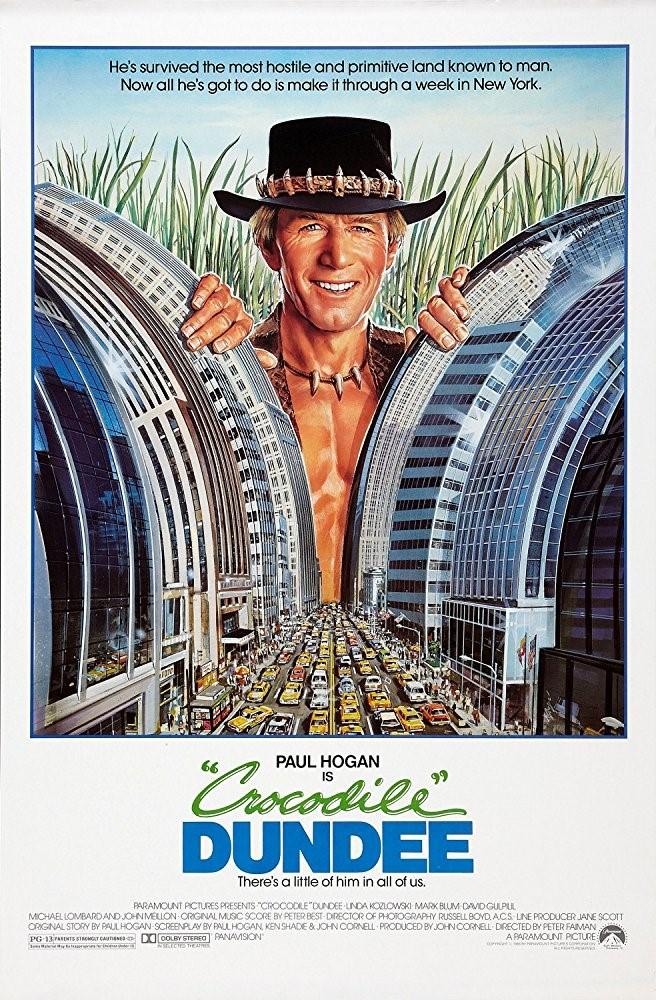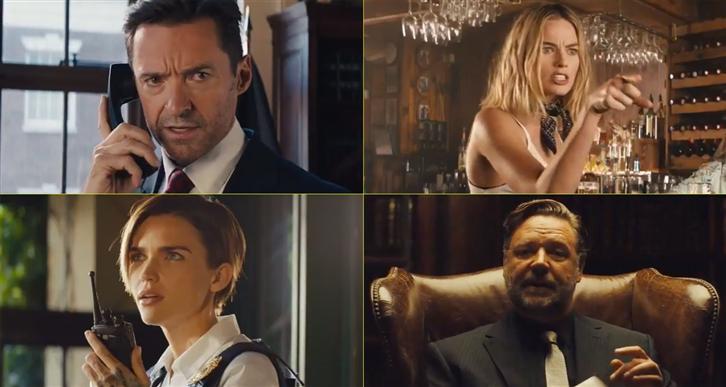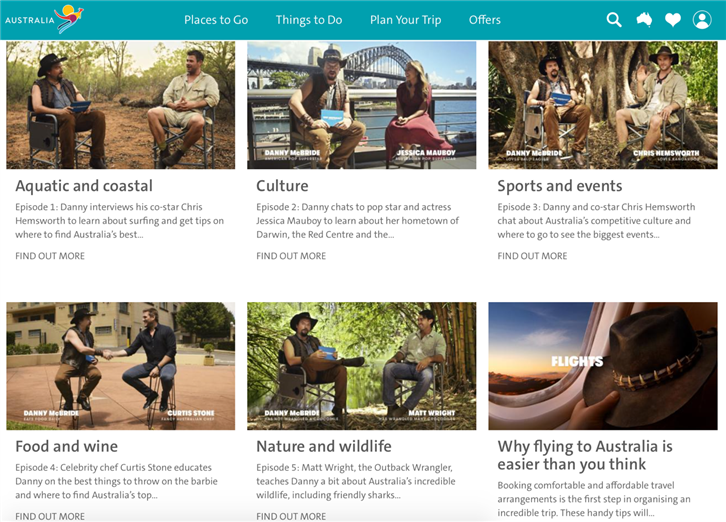
Look at the above movie poster, who do you think the owner of this advertisement is?
Recently, the foreign marketing industry has popularized a new form of expression: disguising the brand’s marketing advertisement as a movie, and even produce a trailer for it! Why would the brand make its customers spend so much time examining the piece of advertisement as a movie trailer, to only find out it is actually an advertisement at the end? What is this method of product marketing really about?
Crocodile Dundee is back! Is it for real?
The most representative example would be “2018 Dundee: The Son Of A Legend Returns Home” by Tourism Australia.
If you are of a certain age, or if you are a fan of old movies, you must be familiar with the original action comedy, “Crocodile Dundee”. Produced by Rimfire Film Company in 1986, “Crocodile Dundee” is said to be one of the most successful Australian-made movie in history. It even came in second as compared to “Top Gun” of the year’s American Box Office, and was also an important piece for the Americans to learn about the beauty of Australia at the time.

▲ The best-selling Australian movie in history
32 years later, Rimfire Film released a trailer for a 2018 “Crocodile Dundee” sequel on Youtube without any prior notice, only stating that the movie is to be released this summer. In the sequel, Crocodile Dundee has gone missing, and only his son (played by comedian Danny McBride) is able to find him. Along with his assistant (played by Thor, Chris Hemsworth), Danny set off for an adventure to find his father.
Producing a Fake Movie Like a Real One, Just So You Would Believe That It Is For Real
What is surprising is that, despite wearing the same outfit as Crocodile Dundee (the same alligator vest, denim hat with alligator teeth, and a Rambo knife in his hand), Danny is not only overweight, but also somewhat funny. Compared to his fit father, the father and son could not have been more different. In the second trailer released (see below), one cannot help but notice the amazing cast included: Wolverine Hugh Jackman, Harley Quinn Margot Robbie, Russell Crowe from Gladiator… It is like the Australian Avengers. There is even a special introductory page on the well-known movie database, IMDB. All these only make people even more likely to believe this movie is coming true!

▲ Just look at the cast of this, wow!
If you are attracted by such information, you will find the website: dundeemovie.com upon further search. You might think this is the official website for the movie, but when you click on it, you will be directed to the webpage of Tourism Australia. That is when you realize “it is all just a huge misunderstanding”!
Tourism Australia has on their first page: “The movie is just an advertisement to promote tourism in Australia. The movie might not be real, but the stunning landscapes, mouth-watering cuisines and intriguing cultures are all the real Australia, awaiting your exploration.” Below you would find information of tourism in Australia, and a video featuring Danny the protagonist, and Chris Hemsworth, telling you all about themes of Australian tourism, including: Aquatic and Coastal, Culture, Delicacies, Sports and Events, Nature and Wildlife, and more.

▲ Crocodile Dundee introduces the different aspects of Australia online according to the different themes on the website
Why does the brand communicate in such a way?
Returning to the subject of this article, we need to consider what advantages can Tourism Australia get from doing this?
1. The Story of the Trailer can be Further Expanded:
In the past, when we are brainstorming on ideas for advertisements, we often need to consider the logic and link of the different story-lines. But trailers require no such thing. Audiences have long been trained to watch trailers, just to learn about “what is attractive”. Trailers do not need to be logical or even coherent. They can even allow great gaps in-between the different instances, just as long as they draw on the attention of even more viewers!
2. Trailers are Prone to Curiosity for Further Actions:
In this digital age, consumers’ reading is fragmented, and they do not like to be disturbed. Unless they are interested in what you are to show them, they would still pretend to not see what it is even if you thrust it under their eyes.
That is another advantage of trailers. If you are interested in what it is about, you will search about it afterwards. And that, for a brand, is a big marketing bonus they long for.
When you find out that it is not a real movie, you won’t even be angry about it. You might want to share it with your friends, just to see how they fall for it like you did.
